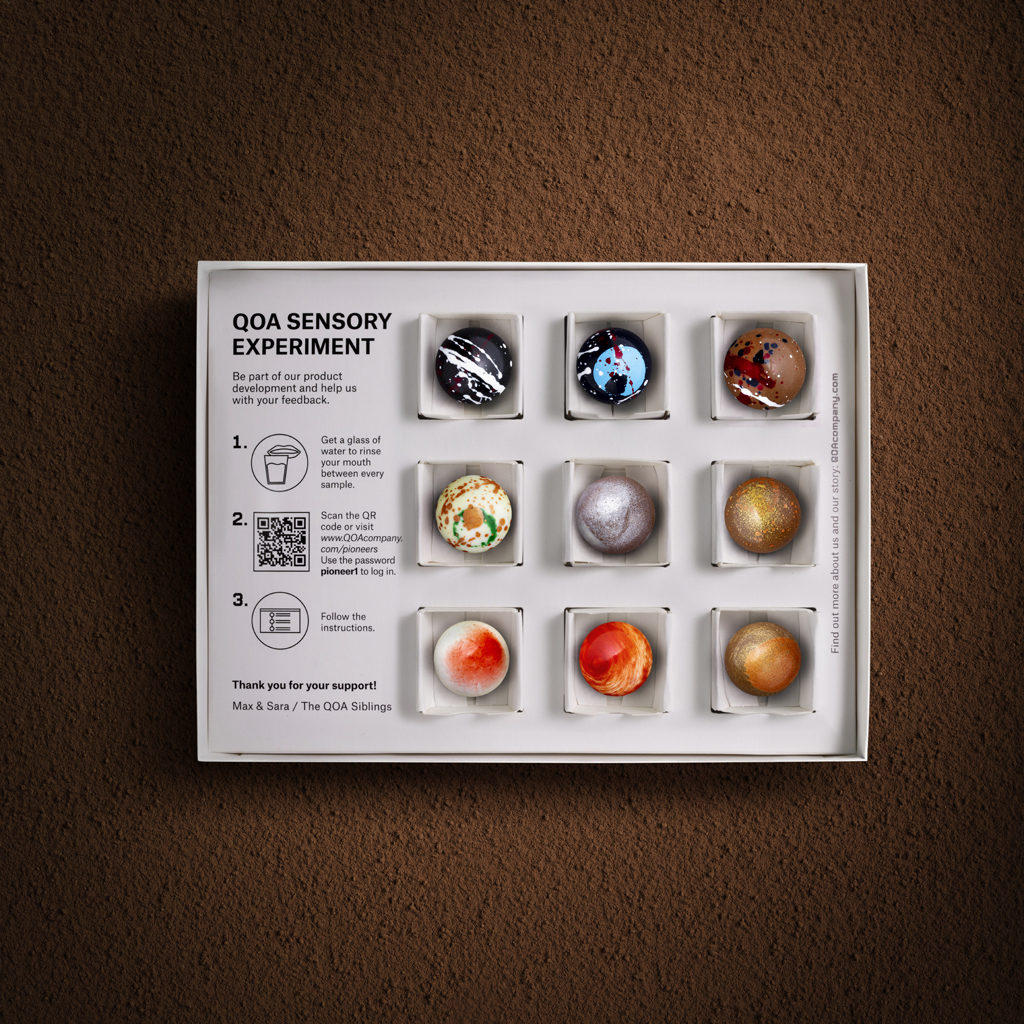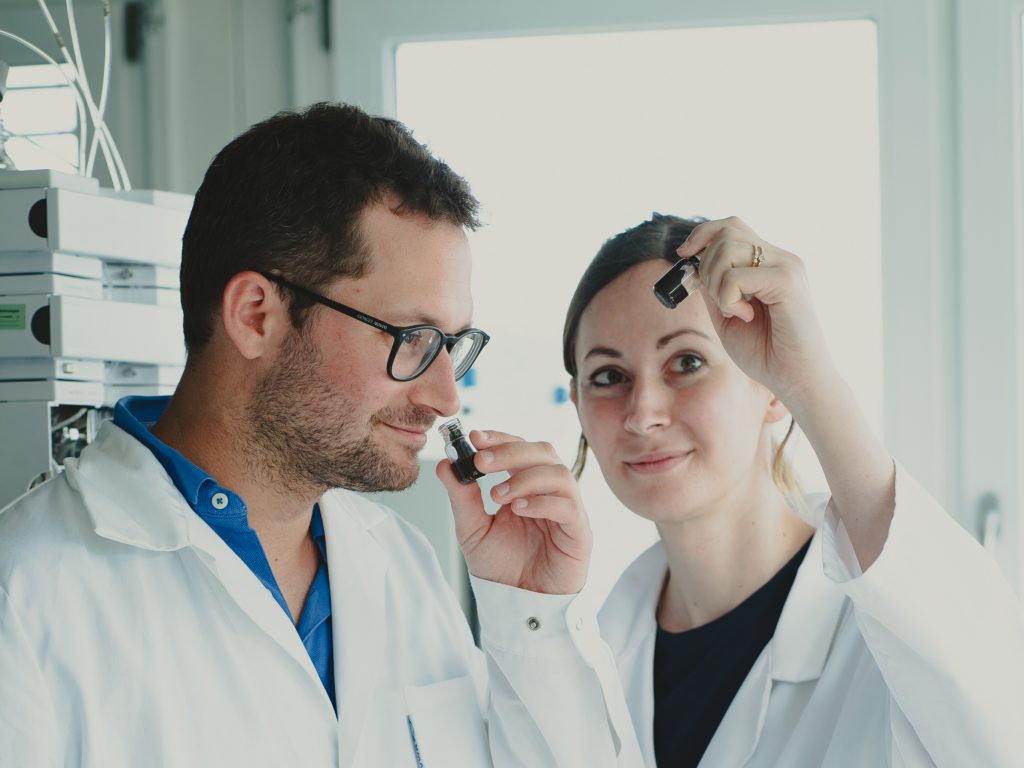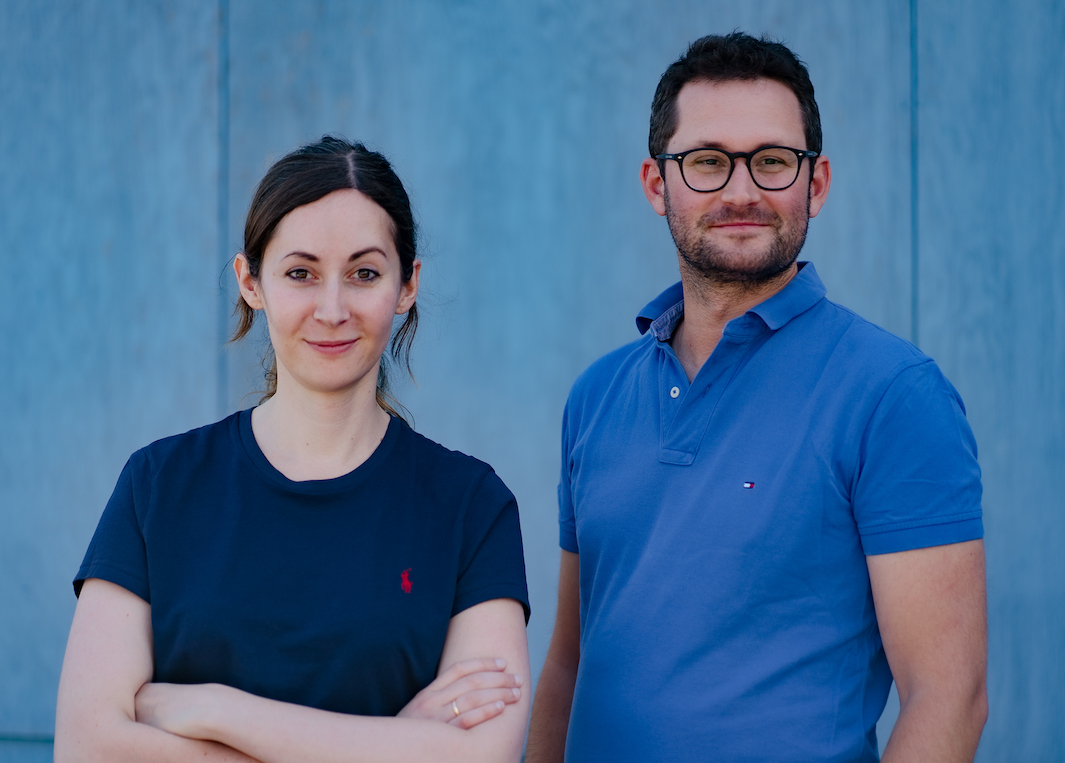3 Mins Read
Cocoa-free chocolate maker QOA has raised $6 million in seed funding. The round was led by Cherry Ventures and included participation from 50years, World Fund, Nucleus Capital, Trellis Road, Pioneer Fund, and Tet Ventures. The new funding will go towards building out a pilot production facility in the company’s hometown of Munich, Germany. QOA will also put the money towards hiring.
Founded this year, Munich, Germany-based QOA’s goal is to combat some of the sustainability and ethical issues surrounding mass-market chocolate by developing an approach to the confection that removes cocoa, its most controversial ingredient.
That requires a precision fermentation method through which QOA recreates the composition of cocoa using other food byproducts. When Max and Sara Marquart, the brother/sister duo behind the company, spoke to Green Queen earlier this year, they mentioned ingredients like the leftover residues from olive, grapeseed, and sunflower oils. The fermented ingredients can then be roasted like a regular bean and used to make alternative chocolates.

A more responsible chocolate
The end goal isn’t to completely eradicate mass-market chocolate. Rather, it’s to make cocoa-free chocolate so ubiquitous that the cocoa-based version becomes a very high-end product made in smaller quantities, ultimately lessening the planet’s reliance on the traditional method. QOA hopes to have scaled production by 2035 enough so that its products are the same cost or lower than the price of the average chocolate bar.
The Marquarts have good reasons for pursuing such a goal. Traditional cocoa production is a highly resource-intensive item that contributes greatly to deforestation and other environmental issues. Countries like Ghana and Ivory Coast, where most cocoa is grown, are considered “climate-change hotspots,” which will impact yields in the future. Meanwhile, Max told Green Queen earlier this year that 1 kilogram of chocolate can produce up to 90 kilograms of CO2, largely from deforestation.
The cocoa industry is also associated with human rights abuses and child labor. This is due in part to major chocolate producers like Hershey and Nestlé can’t typically trace their cocoa well enough to know whether it is grown and produced using child labor.

Looking to 2022
Worldwide, we consume around 7 million tons of chocolate every year. But as the environmental and human costs of cocoa production become more widespread, more food tech companies are experimenting with ways to produce alternative forms of chocolate. Among them are IndieBio graduate California Cultured and Voyager Food. Both companies use a lab-centric approach to recreating chocolate. In a somewhat different vein, indoor farming company AeroFarms also recently struck a deal with Cargill to grow cocoa in a vertical farming environment on US soil.
QOA, who graduated from Y Combinator this year, has so far sent sample kits out to consumers. The company plans to have its first products on the market in 2022 and is currently in talks with business-to-business customers. The company also plans to start a Series A round of funding, though no timeframe was mentioned.
Lead image courtesy of QOA.




